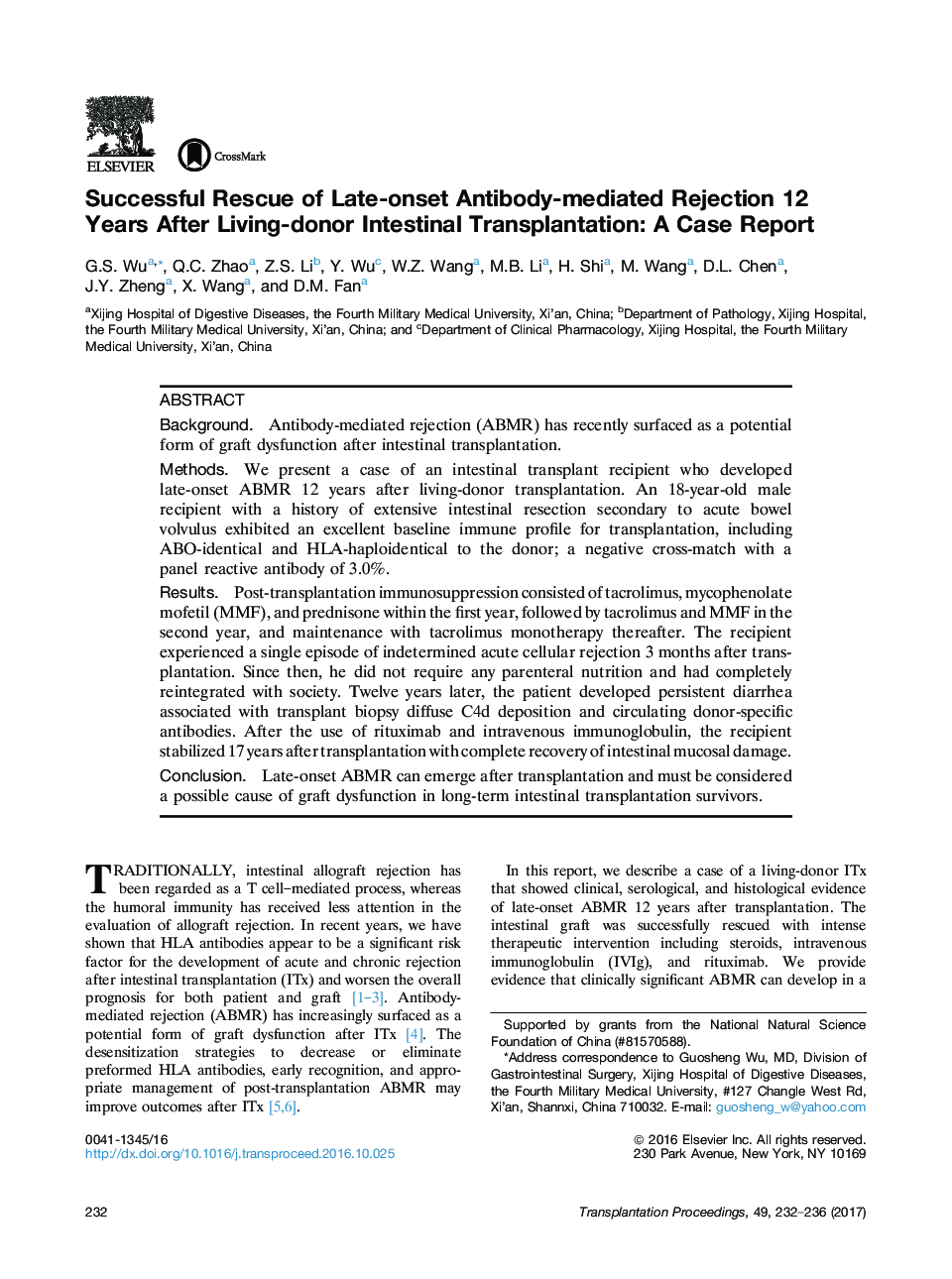| Article ID | Journal | Published Year | Pages | File Type |
|---|---|---|---|---|
| 5729328 | Transplantation Proceedings | 2017 | 5 Pages |
Highlightâ¢Late-onset antibody-mediated rejection must be considered in intestinal graft injury.
BackgroundAntibody-mediated rejection (ABMR) has recently surfaced as a potential form of graft dysfunction after intestinal transplantation.MethodsWe present a case of an intestinal transplant recipient who developed late-onset ABMR 12 years after living-donor transplantation. An 18-year-old male recipient with a history of extensive intestinal resection secondary to acute bowel volvulus exhibited an excellent baseline immune profile for transplantation, including ABO-identical and HLA-haploidentical to the donor; a negative cross-match with a panel reactive antibody of 3.0%.ResultsPost-transplantation immunosuppression consisted of tacrolimus, mycophenolate mofetil (MMF), and prednisone within the first year, followed by tacrolimus and MMFÂ in the second year, and maintenance with tacrolimus monotherapy thereafter. The recipient experienced a single episode of indetermined acute cellular rejection 3 months after transplantation. Since then, he did not require any parenteral nutrition and had completely reintegrated with society. Twelve years later, the patient developed persistent diarrhea associated with transplant biopsy diffuse C4d deposition and circulating donor-specific antibodies. After the use of rituximab and intravenous immunoglobulin, the recipient stabilized 17 years after transplantation with complete recovery of intestinal mucosal damage.ConclusionLate-onset ABMR can emerge after transplantation and must be considered a possible cause of graft dysfunction in long-term intestinal transplantation survivors.
